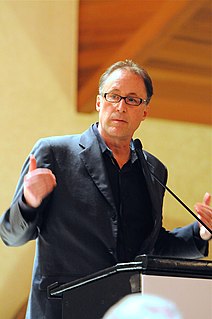Top 18 Quotes & Sayings by Hampton Sides
Explore popular quotes and sayings by an American historian Hampton Sides.
Last updated on April 14, 2025.
Probably the biggest influence on my career was the late John Hersey, who, while he was at 'The New Yorker,' wrote one of the masterpieces of narrative non-fiction, 'Hiroshima.' Hersey was a teacher of mine at Yale, and a friend. He got me to see the possibility of journalism not just as a business but as an art form.
I don't concentrate on any one period of history; I like to locate my stories in wildly different eras and places. I seem to be drawn to large, sprawling, uncomfortable swaths of American history, finding embedded within them a tight narrative that involves strife, heroism, and survival under difficult circumstances.
The forties are the time when you begin to take notice of certain aches and pains. Your body and brain behave in inexplicable ways: Less hair on your head, more in your ears and nostrils. More memories in the bank, less synaptic firepower with which to access them. Gravity has started to show its inexorable pull.
Americans have a profound longing for heroes - now perhaps more than ever. We need our explorers, our sports icons, our Medal of Freedom winners, our Nobel laureates. We need our Greatest Generation warriors, our 'Sully' Sullenbergers, our Neil Armstrongs. On some level, we still subscribe to the myth of the man in the white hat.
























